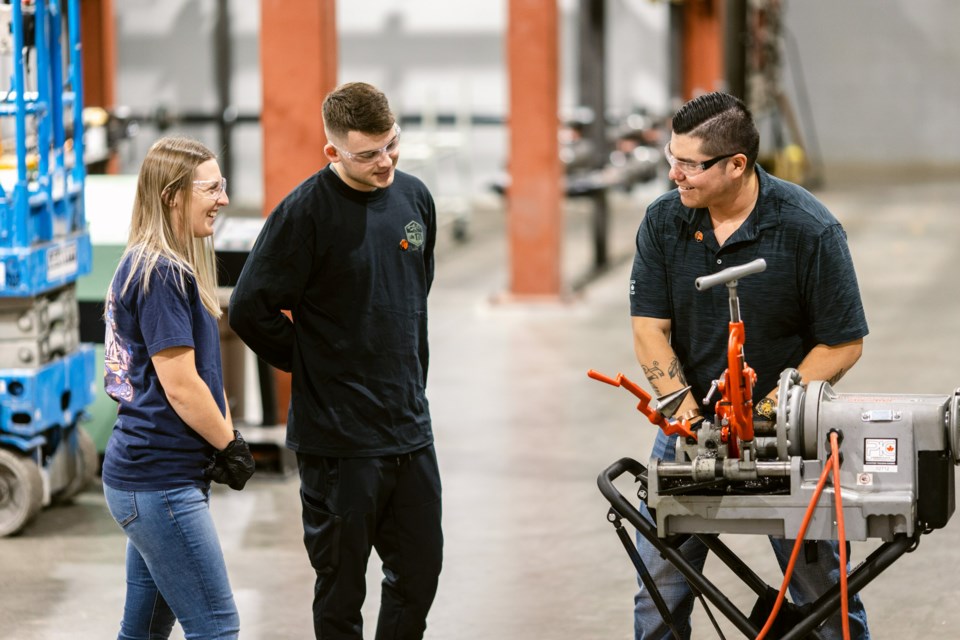A record number of British Columbians were registered in trades apprenticeships last year, according to SkilledTradesBC.
According to SkilledTradesBC’s annual report, more than 41,000 apprentices were registered in B.C. last year in more than 100 trades to get certification. And it surpassed some of its targets for participation in apprenticeships for women and First Nations.
That’s good news for employers in B.C., given the number of skilled workers B.C. expects to lose through retirement.
According to the 2022 B.C. Labour Market Outlook, 83,000 new job openings in the trades are expected over the next decade.
The increase last year in trades workers enrolling in apprenticeships no doubt has something to do with legislation passed last year by the B.C. government that makes it mandatory for workers in certain trades – notably electrical and mechanical trades – to be either fully certified or a registered apprentice.
"We are in a critical time to diversify and grow the skilled trades workforce in B.C. as we face a skilled labour shortage and anticipate 83,000 jobs in skilled trades over the next decade," SkilledTradesBC CEO Shelley Gray said in a press release.
"There is a place for everyone in skilled trades and we are excited to see a record number of diverse British Columbians exploring skilled trades as a means to support their families, build a successful career, and contribute to the communities that make this province our home."
According to SkilledTradesBC’s annual report, its targets for women enrolled in apprenticeships for 2022-23 was 810, but the actual number enrolled was 1,072. Likewise, it had hoped for 1,240 indigenous participants in 2022-23 but got more -- 1,492.
“As Indigenous communities continue to build more capacity to provide training to their members, there is a growing interest in being able to deliver skilled trades training in the communities,” the annual report states.
“In response, SkilledTradesBC has collaborated with Indigenous communities to create innovative training delivery models, such as Community Based Training, where Indigenous people are able to receive trades training without leaving home and start their apprenticeships within their communities.”
The report also notes that youth made up about one quarter of last year's apprenticeship registrants -- 10,018.



